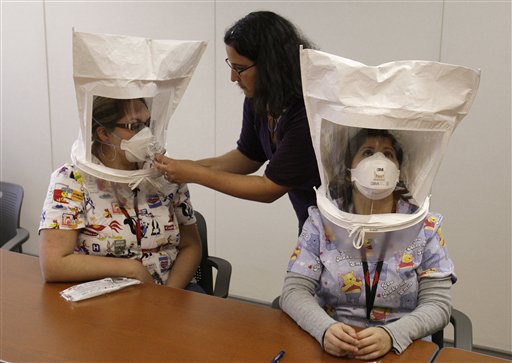With the H1N1 swine flu virus vaccine becoming available this month, there is a big push to vaccinate as many people as possible. However, whether or not you decide to take the vaccine, there are important questions you should ask your doctor or other health practitioner to make sure it is the right choice for you and your family.
1. Does the Vaccine contain additives such as mercury or squaline?
Additives called adjuvants like mercury (thiamerisol) are added to inhibit bacterial contamination. However, some studies have implicated mercury as a cause of autism and squaline as a cause of neurological damage respectively.
2. How can I avoid getting a vaccine that contains mercury?
Ask to receive your vaccine from a single dose vial. Unlike the multiple dose vials which contain thiamerisol, the single dose vials do not contain that additive.
3. Will getting the vaccine completely protect me from getting the swine flu?
The vaccine comes in two forms - a nasal form and an injectable form. The nasal form contains live virus that has been altered (attenuated) to be less infectious. The injectable form is made from a killed form of the virus. Because there is an increased risk of actual infection,
the live (attenuated) virus should not be given to individuals with compromised immune systems such as pregnant women, HIV patients, those on chemotherapy or children.
4. Is the swine flu more dangerous than the seasonal flu?
Since the outbreak of the flu this past spring, over 74 countries have documented cases of the H1N1 virus. There have been approximately 345,000 cases world wide with 4,100 deaths. Conversely, there are approximately 40,000 deaths due to the seasonal flu each year in the US. Statistics continue to
suggest that the H1N1 virus is not as deadly as has been purported. To date it has been a relatively mild and self-limited infection in both adults ans children.
5. What are the risks and benefits of taking the vaccine?
The mortality rate is largely associated with pneumonia caused by secondary bacterial infections. In fact secondary bacterial pneumonia was the main cause of death in the influenza pandemic of 1918. It is important to weigh the risks associated with the potential side effects of the vaccine vs the vaccine's inability to protect from the more deadly complication of bacterial pneumonia.
Dr Elaina George is Board certified Otolaryngologist who started Peachtree ENT Center with a mission to practice state of the art medicine that is available to everyone. She graduated from Princeton University with a degree in Biology. She received her Masters degree in Medical Microbiology at Long Island University, and received her medical degree from Mount Sinai School of Medicine in New York. Dr George completed her residency at Manhattan, Eye Ear & Throat Hospital. Her training included general surgery at Lenox Hill Hospital, pediatric ENT at The NY-Presbyterian Hospital, and head and neck oncology at Memorial Sloan-Kettering Cancer Center. She has published in several scientific journals and presented her research at national meetings.
For media or speaking requests, please call (901) 413-0203 or emailinformation@yourblackpublicity.com











No comments:
Post a Comment